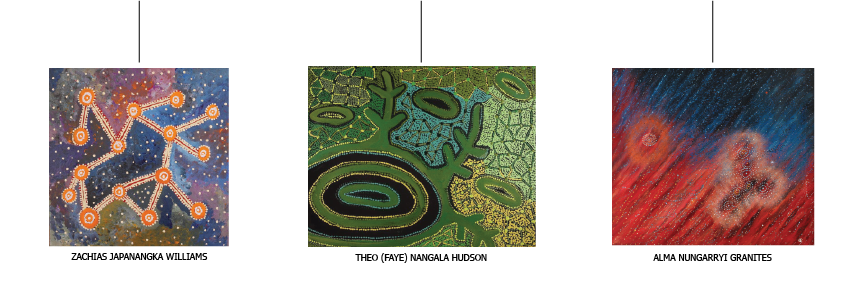
A BRIEF HISTORY |
 |

The elders passed this information to succeeding generations through elaborate ceremonies, which included singing, dancing, and story-telling, as well as visual expression in sand paintings, body painting and adornment, decoration of objects, and designs on cave walls.
It was not until the early 1970s that the Aboriginal people, the world's oldest living culture, were encouraged to share their pictorial traditions with the “outside world” by painting them on canvas. Since the first paintings were created at the remote Papunya settlement deep in the Central Desert, Aboriginal artists have continued to paint their country and their ancestral stories in strikingly contemporary fashion. Their work is increasingly recognized by art critics as one of the most important art movements of the modern world, and as one of the best values for collectors of contemporary art.
Geraldine Brooks, The New Yorker, July 28, 2003:
"Aborigines have the world's oldest continuing artistic tradition. Native Australians began painting rock walls fifty thousand years ago; early Europeans would not decorate the caves of Lascaux for another thirty-five thousand years."

© Booker•Lowe Gallery 2018, 4623 Feagan Street, Houston, Texas 77007 USA
Tel: 713.880.1541 Fax: 713.862.8364
info@bookerlowegallery.com

